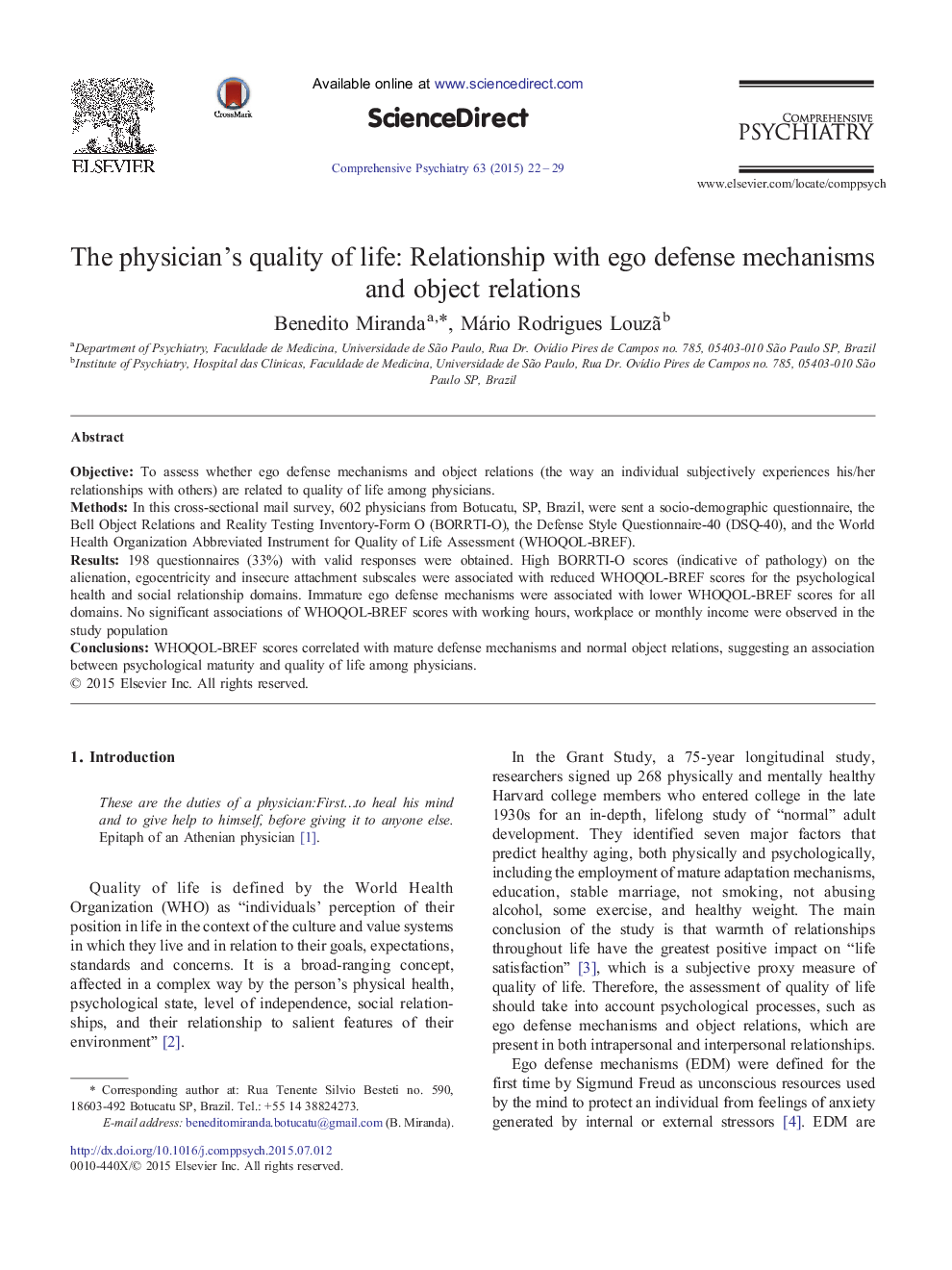| Article ID | Journal | Published Year | Pages | File Type |
|---|---|---|---|---|
| 318091 | Comprehensive Psychiatry | 2015 | 8 Pages |
ObjectiveTo assess whether ego defense mechanisms and object relations (the way an individual subjectively experiences his/her relationships with others) are related to quality of life among physicians.MethodsIn this cross-sectional mail survey, 602 physicians from Botucatu, SP, Brazil, were sent a socio-demographic questionnaire, the Bell Object Relations and Reality Testing Inventory-Form O (BORRTI-O), the Defense Style Questionnaire-40 (DSQ-40), and the World Health Organization Abbreviated Instrument for Quality of Life Assessment (WHOQOL-BREF).Results198 questionnaires (33%) with valid responses were obtained. High BORRTI-O scores (indicative of pathology) on the alienation, egocentricity and insecure attachment subscales were associated with reduced WHOQOL-BREF scores for the psychological health and social relationship domains. Immature ego defense mechanisms were associated with lower WHOQOL-BREF scores for all domains. No significant associations of WHOQOL-BREF scores with working hours, workplace or monthly income were observed in the study populationConclusionsWHOQOL-BREF scores correlated with mature defense mechanisms and normal object relations, suggesting an association between psychological maturity and quality of life among physicians.
